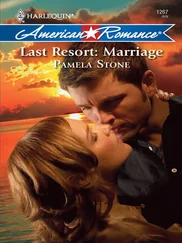The trouble was, she liked Gerry Grass, but she couldn’t love him. For one thing, she couldn’t believe he was a good poet. Jenny had often been moved by poetry: Wordsworth and Robert Frost and Emily Dickinson, especially. “The soul selects her own society ... She had begun quoting those lines to Lee yesterday, and Lee had joined in, so that they finished the poem in a soft, close chorus. Gerry’s poems didn’t rhyme or scan, and the collection of essays whose proofs she had been reading for him was even worse, being wholly concerned with himself and his impressions and opinions of other poets. It wasn’t the sort of book that would ever make a real difference in the world.
What Lee did, though, had made a difference and would continue to make a difference. She listened for hours to women who stayed in the guest house, like the therapist she had been, but she didn’t charge them anything. And quite often, when someone was in trouble or couldn’t pay, she let them stay there for almost nothing or even absolutely free.
“Is there anything else I can do for you?” she asked Wilkie, lowering her voice in case he was already asleep.
“No thanks. Wait—There is one thing. You can keep that silly girl out of here.”
“Girl?”
“You know. My new fan. She called my room twice this morning, before you got to the hospital.”
Jenny sat silent, her mouth half-open.
“You know who I mean. Came to the hospital with me. Wants to save manatees.”
“Barbie? You don’t want to see Barbie?”
“No. Certainly not now.”
“I thought you—” Jenny heard her own voice, a kind of hysterical gulp, and swallowed the rest of the sentence.
“What?” her husband murmured drowsily.
“I thought you liked her.”
“Well, I suppose I’m grateful to her. Ought to be anyhow. But she exhausts me. Bores me too. I can’t be bothered with fans now.”
Jenny swallowed again. Liar, liar, she thought. “Barbie’s not just a fan,” she said, her voice shaking. “I know all about it. I saw you kissing her on Sunday.”
“What?” Wilkie repeated, but this time the word was a firecracker.
“I saw you. Right out in front of this house. On Valentine’s Day.” Jenny laid out the facts in a tone that wavered but made each word an accusation: of adultery; of cold-blooded hypocrisy; of blatant public exposure.
“Nothing of the sort,” her husband said, raising himself on one elbow, frowning heavily.
“I saw you, from the living room window.”
“That’s ridiculous, I never—Wait a second.” Wilkie pulled himself up into a sitting position. “Was this the day that poor fellow in the wheelchair drowned at the beach?”
“I guess so. Yes.”
“I remember.” He stared past Jenny, the frown between his bushy piebald eyebrows deepening. “Yeah. She stopped me at the gate, tried to give me some pamphlets. I was exhausted after all the fuss over the accident. Shaking with cold. All I wanted was to get inside, have a hot shower. So I took her handouts, I figured that was fastest, and she jumped on me and gave me a big sloppy kiss.”
“I-uh,” Jenny stuttered. Maybe he’s not lying, she thought. Or else he’s lying awfully well.
“You didn’t think, darling—You couldn’t—”
“Yes, I did,” Jenny said. “Anyhow I wondered—I mean, you’ve been so strange, you’ve hardly spoken to me for months. I thought you were angry with me about something. But then after Sunday I assumed you were probably involved with Barbie Mumpson.”
“That is totally insane,” Wilkie said with force. “I had no idea—You must know, Jenny, I could never seriously care for any other woman. You should have realized that. After all these years—And a goop like, what’s her name, Bobbie. How could you possibly believe that?”
“Barbie,” Jenny corrected. Suppose he’s telling the truth, she thought. Suppose he does still care for me, in some sort of way. But if that’s so he’s not guilty of adultery. He’s not guilty of anything except being unpleasant for months. I’m the one who’s guilty.
“Whatever. I’m very sorry you got that impression. I admit I’ve probably seemed preoccupied. I’ve seemed—I’ve been—” He frowned and looked away, out of the window, as if the words he was searching for might fly past like birds; then he looked back.
“Strange,” Jenny supplied, when he did not continue. “Very strange and cold and unfriendly.”
“I’m sorry,” Wilkie said for the second time, rather haltingly; it was not his usual habit to apologize. “It’s true, Jenny, I’ve had things on my mind. I didn’t want to burden you with them.”
“What things?” she demanded.
“Different things. How to finish the book, and I thought—” Wilkie paused for almost a minute. Jenny, waiting, did not speak. “I thought I was sick,” he said finally.
“You were sick, yesterday,” Jenny said, worried now. Was her husband losing touch with reality? Had he had a stroke, a memory loss?
“Not that,” Wilkie said slowly and gratingly, as if he were drawing the words up from an old well, with long pauses between the sentences while the bucket went down again. “I mean before yesterday. I thought I was seriously ill. For quite a while. Since last fall. I thought I had—” he paused again, swallowed “—cancer, actually.”
“Oh, that’s awful—You really thought—But Dr. Felch said—”
“Yeah, I know. It was a mistake.” He gave a weak half-smile. “At least I hope so. The head doctor at the hospital who came in this morning says the same as Felch. Says I’m in good shape.”
“But all this time, since last fall, you thought—”
“Well. Yeah. That’s probably why I’ve seemed—What was it you said? Strange. Unfriendly.” Wilkie’s eyes began to close, then opened again. “I suppose that’s why you had those absurd ideas about that girl,” he said. He gave a thin, wheezing sigh, and shut his eyes.
Still holding the Times, Jenny stared at her husband. It wasn’t like him to say what he’d just said, to apologize, to worry about his health. It was like another person, a wholly different sort of person. And as she thought this, Wilkie began to change while she watched, from a strong, handsome, healthy, but cold and unfaithful husband into a heavy, slack, elderly person with gray chenille hair and irrational fears.
She looked at his hand, fallen slack against the pink sheet printed with pinker flamingoes: the square-cut nails, the faded-red scar shaped like a quarter moon, the underwater watch. That was Wilkie’s watch; and the scar on the veiny hand was the one Wilkie had got fighting a brush fire in Canada while researching an article about wolves for the Smithsonian. The man in the bed was her husband, Wilkie Walker; but at the same time he wasn’t.
It was like in Convers last fall, she thought, only worse, because when after a minute or so Wilkie half opened his eyes again and looked at Jenny the illusion didn’t end. His expression remained unfocused, weak, even confused. And she wasn’t the same either, she too was weak and confused.
“Jenny?” Wilkie said, opening his eyes again. “Come over here.” He smiled and indicated a place beside him on the shiny pink bedspread.
“I—” She hesitated, then automatically moved to sit in the designated spot. Wilkie, levering himself up from the pillow, put one heavy arm around her, and gave her half a hug.
“That’s better, isn’t it, darling?” he said.
“Mm,” Jenny lied. Slowly, because it was so clearly expected of her, she leaned forward to touch the shoulder and kiss the dry, ruddy cheek of the person who used to be Wilkie Walker.
“All right now?” he asked.
Читать дальше












